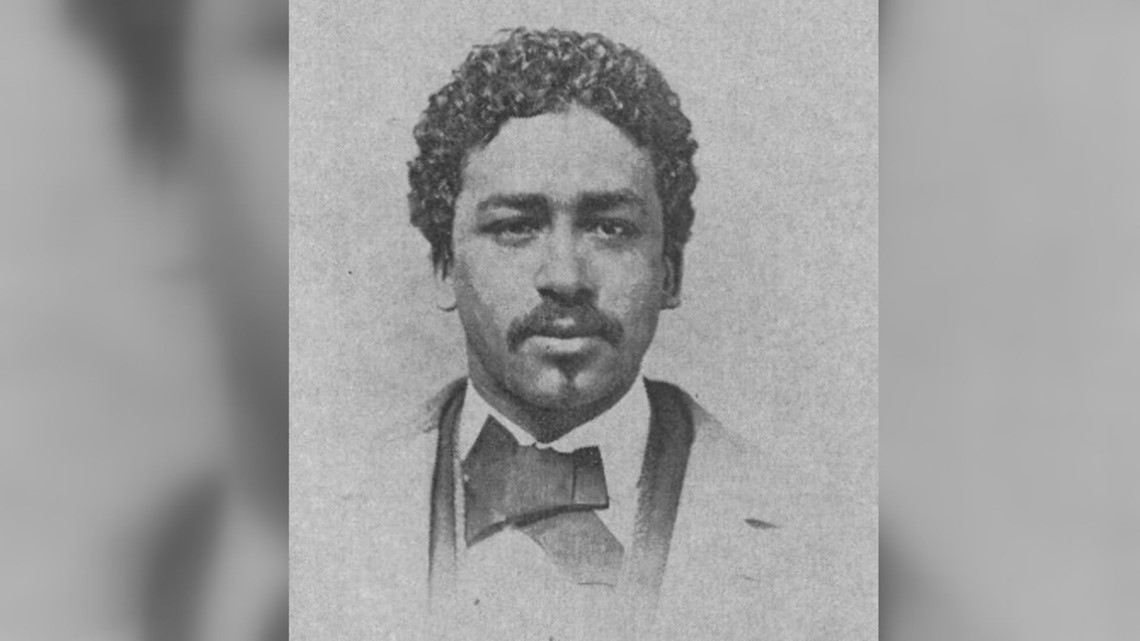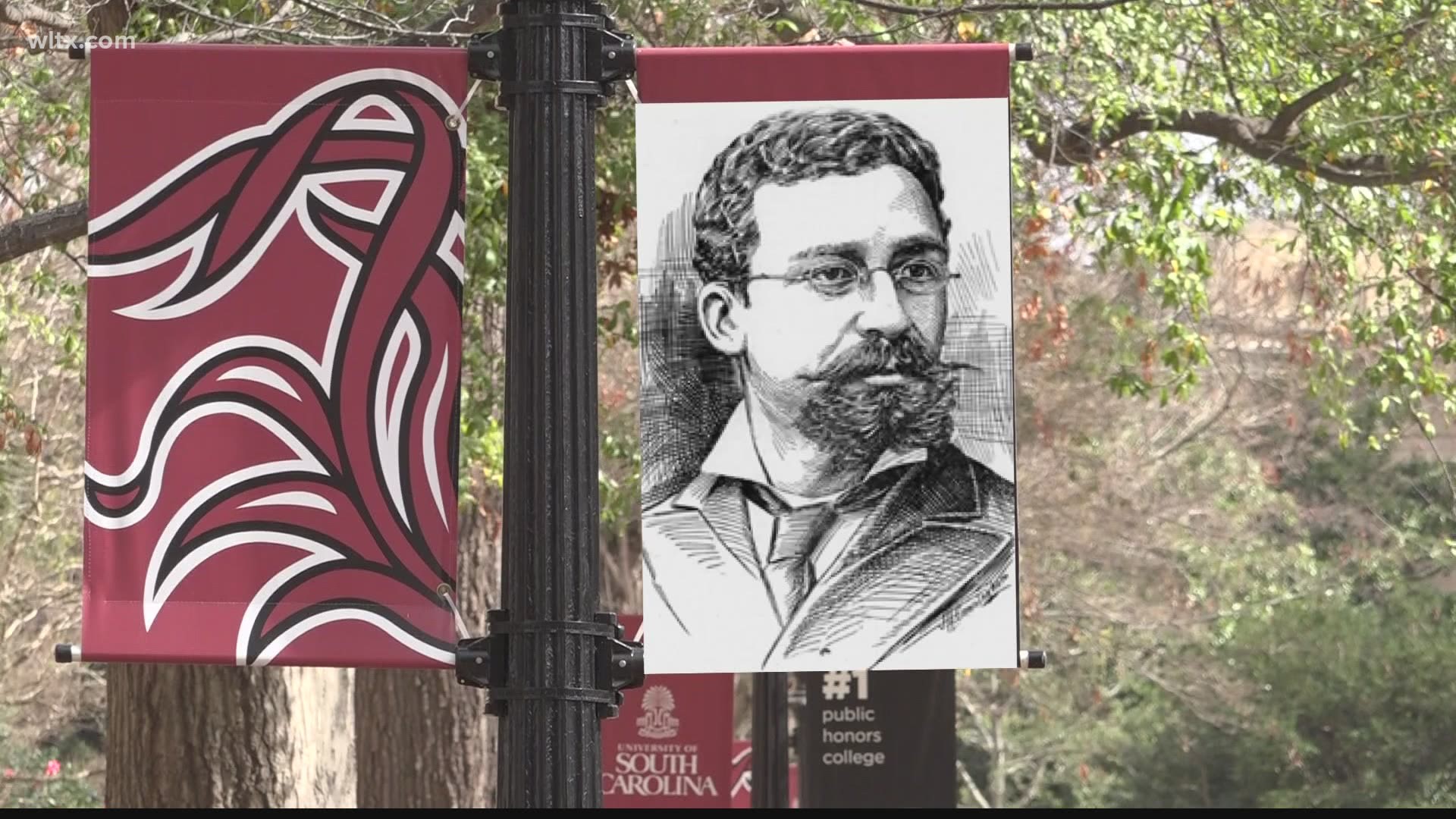COLUMBIA, S.C. — Eight years after the Civil War ended, the University of South Carolina reached out to Richard T. Greener to join their team of professors.
Greener was the first African-American to graduate from Harvard University and found himself teaching at USC in the fall of 1873.
“He taught Latin, Greek, philosophy and law," Dr. Christian Anderson, associate professor of education at USC said. "He helped create a preparatory program for Black students who were not prepared, obviously we had just come out of the Civil War, many of them were enslaved or had come from enslaved families, they did not have proper educational preparation, so he helped to rectify that.”
A statue of Greener stands outside of the Thomas Cooper Library, commemorating his teaching at the University from 1873 to 1877.
His career at USC ended in 1877, just before the university was closed following reconstruction. It later opened up only for whites.
Greener was also a librarian at the university. He lobbied for money to repair the South Caroliniana Library and provided scholarships for students.
“And then, as if that’s not enough," Dr. Anderson says, "he attended the law school and he was one of the 11 students who graduated from the law school during reconstruction.”


After he left the Palmetto State, Greener went on to do many things but always considered South Carolina home. “He was born in Philadelphia, grew up in Boston and Cambridge, went to Harvard, lived in Washington DC and New York City and Chicago, but his whole life he called himself a South Carolinian.”
The University didn’t hire another Black professor until the 1970s, almost 100 years later.
“To me, Richard T. Greener is the great ‘what-if’ of USC history," Dr. Anderson said. "What if the university had not closed in 1877 and then reopened three years later for whites only? What if he had been able to carry out a lot more of his academic career here instead of just those three years? What more might he have accomplished in another four years or 14 years or however long he might have stayed here? And so, by asking those what-if questions, what could have been, makes us think what should we be doing now?”
The Richard T. Greener statue was erected outside of Thomas Cooper Library in 2018.

